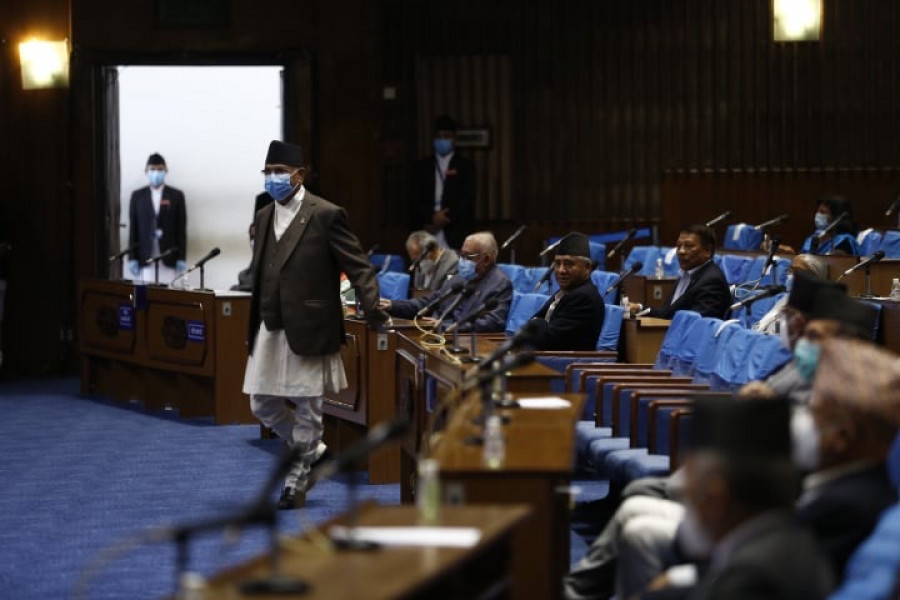Editorial
Turning the tide
The fight now should be about how we can stop making democracy a zero-sum game.
The months-long drama emanating from the ruling Nepal Communist Party’s internal politics for power-grabbing has now given way to the same business of political brinkmanship yet again. With the Supreme Court invalidating the amalgamation of the KP Oli-led Communist Party of Nepal (UML) and the Pushpa Kamal Dahal-led Maoist Centre, the two communist parties have returned from the dead. And with it, the old tricks of parliamentary politics that the people had hoped were gone for good after the last parliamentary elections have returned as well.
The citizens’ quest until the end of February was about saving democracy from the authoritarian tendencies of Prime Minister KP Sharma Oli. After the reinstatement of Parliament, though, it is all about saving that very democracy from parliamentary politics. The clash of the political titans has returned to Parliament, as the battle now is on who forms the next government. All eyes are on Article 76 of the constitution, to see which political equation hits the majority mark to stake its claim to a new government.
The Maoist Centre may seek the support of the Nepali Congress and Janata Samajbadi Party to form a government; the CPN-UML, though a fractured party, may seek the support of either the Nepali Congress or Janata Samajbadi Party for the same; the Nepali Congress, as the second largest party in Parliament and the rightful claimant to the position of the opposition, is itself in the race to lead a government if such an opportunity presents itself. Suddenly, every party in Parliament looks like a kingmaker; but it is very much likely that none turns the king, leading to mid-term polls. Amidst this imbroglio, ambitions for power grabbing should not turn the hard-earned democracy into a shipwreck.
One of the most important tasks of political leaders in a multi-party parliamentary system is to champion democratic consciousness among the citizens and stand in defence of democracy come. However, as they go back to politicking in Parliament, the very ideals of parliamentary democracy risk eroding one attack at a time. But for sporadic attempts by political parties at course correction in the event of a major rupture in democratic politics, Nepal’s parliamentary democracy is more or less an uninterrupted race for power grabbing. Every political party has its fair share of opportunists who will go to any extent to grab power and position.
To change this, there is a need for a paradigm shift in the way Nepal’s parliamentary democracy is exercised. There is a need for major stakeholders of this system to contemplate how we can stop making parliamentary democracy a zero-sum game and make it work towards uplifting the lives of the people. The current cohort of leaders show no such inclination. Sparing a few exceptions, the second generation leaders across the political spectrum show no such inclination either. That, perhaps, is the saddest part of the future of democracy in Nepal.




 27.41°C Kathmandu
27.41°C Kathmandu














